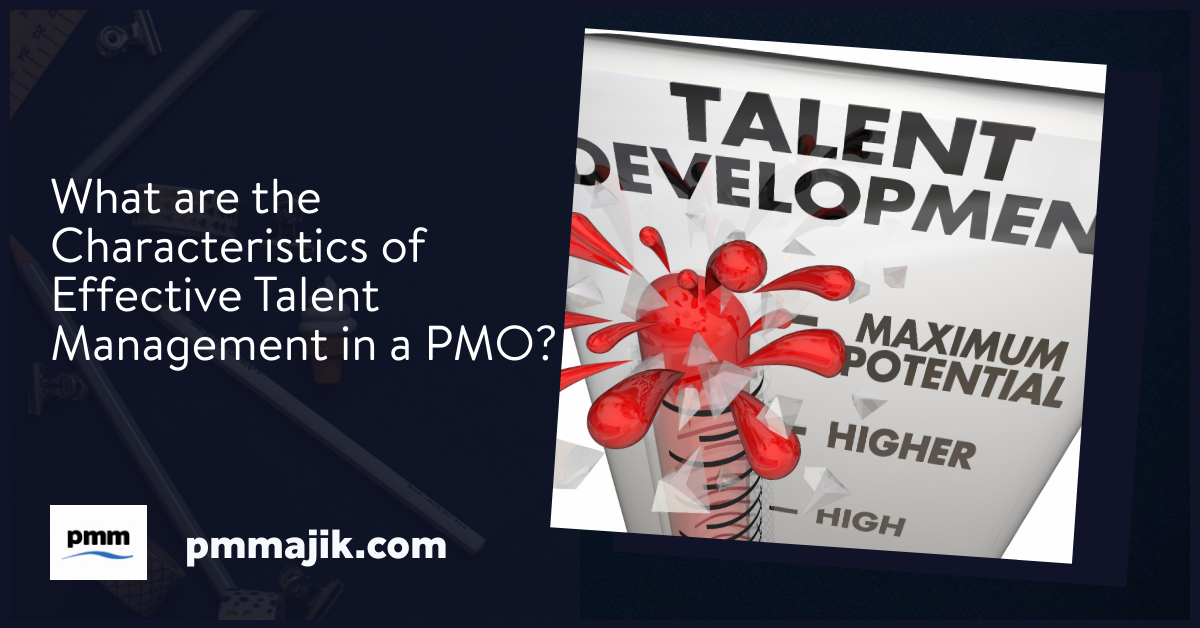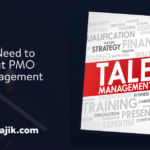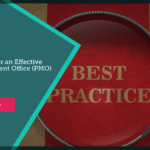Effectively managing the talent within your project management office (PMO) will improve your PMO results. You need to have strong project managers and a wider project team to be successful.
Knowing the characteristics of effective talent management within a PMO will help you target your efforts and feed requirements into the wider business. These characteristics are derived from a study by the PMI on how to effectively manage PMO talent.
We’re going to look at the six characteristics it identified and how you can integrate each into your PMO and business.
1. Being able to transfer talent from the current to the next project effectively
A good PMO will be able to transition project managers and other human resources from one project to the next.
This entails a range of elements, such as making sure project schedules line up to allow for workers to move to the next project without rushing closing and reporting on a project. You also need to make sure that if resources are shared across projects, that you don’t push them to burnout.
2. Being prepared to bring in new talent when the PMO is ready for it
You need to plan effectively for when you need to have new project workers to make sure you can maintain delivery momentum.
Strong onboarding is also important to make a new person feel welcome and will also make a good first impression of your talent management programme. Your PMO may not have a full handle on the recruiting process, but you can work closely with your HR department to ensure you’re ready to bring people in when needed.
3. Having a strong succession plan in place across the business
Project managers and other talents can’t stay within your business forever. You need to make sure that you have a plan for when people move onwards or upwards.
You will need to work with the wider business to make sure there is a long-term talent plan. Natural attrition and people moving to a bigger business with more opportunities will mean you always need to know who is going to fill each desk in the business.
4. Linking career advancement with the business’ succession planning
Make sure that everyone in your projects and office know that they have the chance to go far.
When your team see that you are investing in the next generation of project managers and your PMO team, you will give them a goal to work for. There needs to be a clear career path and succession plan within the PMO that mirrors wider business plans.
Knowing that they have something to aim for will keep your talent keen to progress.
5. Encouraging leaders in the business to adopt and continue to use data and analytics
This characteristic is one that your PMO will have little direct influence over. However, you can still find ways to help leaders understand performance better.
Your PMO should have good talent in terms of data gathering and reporting. Making sure that you use this reporting skill to educate and inform the C-suite can drive a wider demand for data.
You may need to play a long game with this characteristic, but there is data behind it to prove that projects deliver successfully when data is adopted.
6. Investing in HR technologies and processes
In a strategically-minded business, you should be able to make a strong case for investing in the HR side of the business to improve talent management.
Of course, you need to be careful not to tread on the toes of HR, nor be too critical of the work it currently does. However, if you can see your HR team don’t have the right tools to support your talent management plan, you can make a case for more money to be invested.
The characteristics of good talent management
Some of the characteristics of good talent management in your PMO can be implemented within your PMO at pace, while others will need a long-term, coordinated plan across the business.






